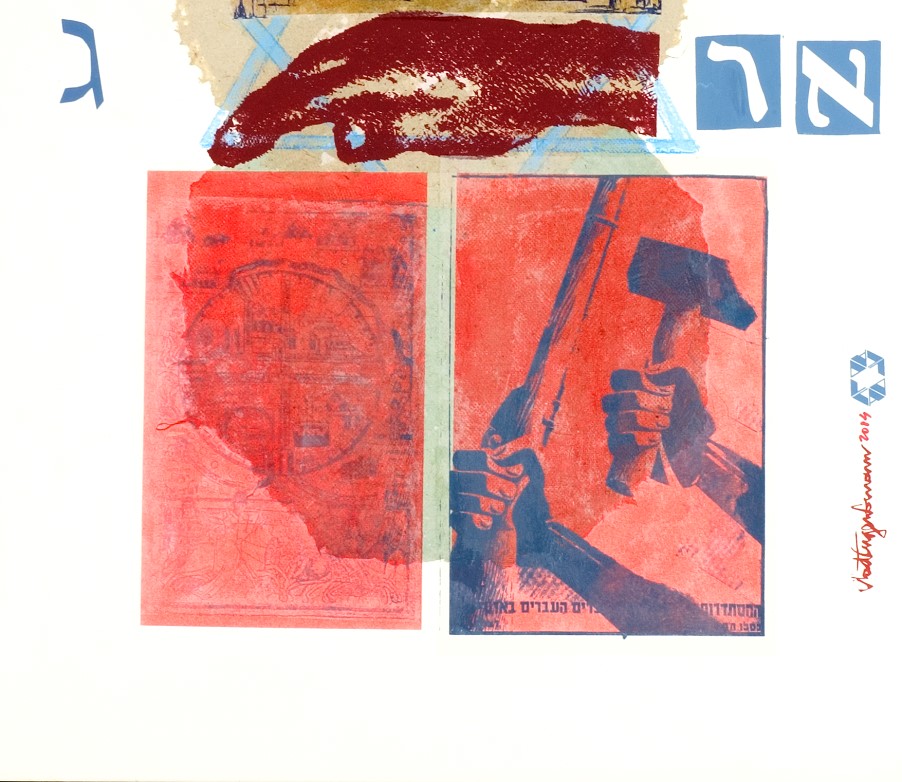Der Volf
un ciclo de canciones Yiddish
DOI:
https://doi.org/10.35699/1982-3053.2022.41874Palavras-chave:
Ídish, Canciones, Der volfResumo
A partir de una exploración en torno a la relación entre monstruosidades y judeidad, comencé a realizar una adaptación del poema narrativo Der Volf (El lobo) escrito por H. Leivik en 1920, con el objetivo de crear un ciclo de canciones ídish titulado de la misma forma. Hasta el momento, compuse, interpreté y grabé en formato audiovisual las primeras dos canciones: Ash un koyl un mer gornisht (Cenizas, brasas y nada más) e In vald arayn (Hacia dentro del bosque). En este escrito doy cuenta de la relación entre la figura del hombre-lobo, el ídish y la música desde la perspectiva de una artista-investigadora.
Downloads
Referências
GELLER, Jay. Der Volf’ or The Jew as Out(side of the)law. En: IDELSON-SHEIN, Iris; WIESE, Christian (org.). Monsters and Monstrosity in Jewish History. From the Middle Ages to Modernity. Gran Bretania: Bloomsbury Academic, 2019. p. 251-264.
GELLER, Jay. Dogged by Destiny. Lupus est homo homini, non homo, quom quails sit non navit. En: GELLER, Jay. Bestiarium Judaicum: Unnatural Histories of the Jews. Nueva York: Fordham University Press, 2018. p. 188-220.
GLOCER, Silvia. Clase n. 4 perteneciente al módulo n. 4: Melodías del destierro. Música y judeidad en los escenarios argentinos (1930-1950). Capacitación Universitaria Extracurricular en Prácticas y Poéticas de la Judeidad argentina, Facultad de Filosofía y Letras, Universidad de Buenos Aires, 2020.
GOTTESMAN, Itzik. Folksong, Demons, and the Evil Eye: Folklore of Ashkenaz. En YIVO’s Shine Online Educational Series, 2017. Disponible en: https://yivo.org/Folklore-of-Ashkenaz. Acceso en: 3 mayo 2020.
GROS, Alexis Emanuel. El Yo no es amo en su propia casa: una revisita sistemática de la teoría de la subjetividad de Sigmund Freud. Eidos: Revista de Filosofía de la Universidad del Norte [en linea], n. 26, p. 74-104, 2017. Disponible en: https://www.redalyc.org/articulo.oa?id=85448897004. Acceso en: 13 nov. 2020.
HARSHAV, Benjamin & Barbara. H. Leyvik. En: American Yiddish poetry. California: University of California Press, 1986, p. 675-769.
IDELSON-SHEIN, Iris. Introduction: Writing a History of Horror, or What Happens When Monsters Stare Back. En: IDELSON-SHEIN, Iris; WIESE, Christian (org.). Monsters and Monstrosity in Jewish History. From the Middle Ages to Modernity. Gran Bretania: Bloomsbury Academic, 2019. p 1-18.
LEMBKE, Astrid. The Raging Rabbi: Aggression and Agency in an Early Modern Yiddish Werewolf Tale (Mayse-bukh 1602). En: IDELSON-SHEIN, Iris; WIESE, Christian (org.). Monsters and Monstrosity in Jewish History. From the Middle Ages to Modernity. Gran Bretania: Bloomsbury Academic, 2019. p 201-212.
ROSKIES, David. The Pogrom Poem and the Literature of Destruction. Notre Dame English Journal. The University of Notre Dame, v. 11, n. 2, p. 89-113. Abril 1979.
SHANDLER, Jeffrey. Founded in translation. En: SHANDLER, Jeffrey. Adventures in Yiddishland: postvernacular language and culture. California: California University Press, 2005.
SKURA, Susana. Introducción: Yiddish en Argentina: mame-loshn, lengua muerta, lengua minorizada. En: SKURA, Susana (org.). Reflexiones sobre el Yiddish. Buenos Aires: Sholem Buenos Aires, 2012, p. 9-25.
TOKER, Eliahu. H. Leivik. En: The International Raoul Wallenberg Foundation. Disponible en: https://www.raoulwallenberg.net/wp-content/files_mf/6620.pdf> Acceso en: 20 nov. 2020.
TUSZEWICKI, Marek. Demonology at the Crossroads. The Presence and Significance. Scripta Judaica Cracoviensia. v. 13, n., p. 93-112, 2015. Disponible en: www.ejournals.eu/Scripta-Judaica-Cracoviensia. Acceso en: 27 jul. 2022.
Downloads
Publicado
Edição
Seção
Licença
Copyright (c) 2022 Arquivo Maaravi: Revista Digital de Estudos Judaicos da UFMG

Este trabalho está licenciado sob uma licença Creative Commons Attribution 4.0 International License.
O autor cede os direitos autorais à revista Arquivo Maaravi. Os direitos de licenciamento utilizados pelo periódico estão sob a Licença Creative Commons do tipo atribuição BY: são permitidos o compartilhamento (cópia e distribuição do material em qualquer meio ou formato) e adaptação (remix, transformação e criação de material a partir do conteúdo assim licenciado para quaisquer fins, inclusive comerciais.











